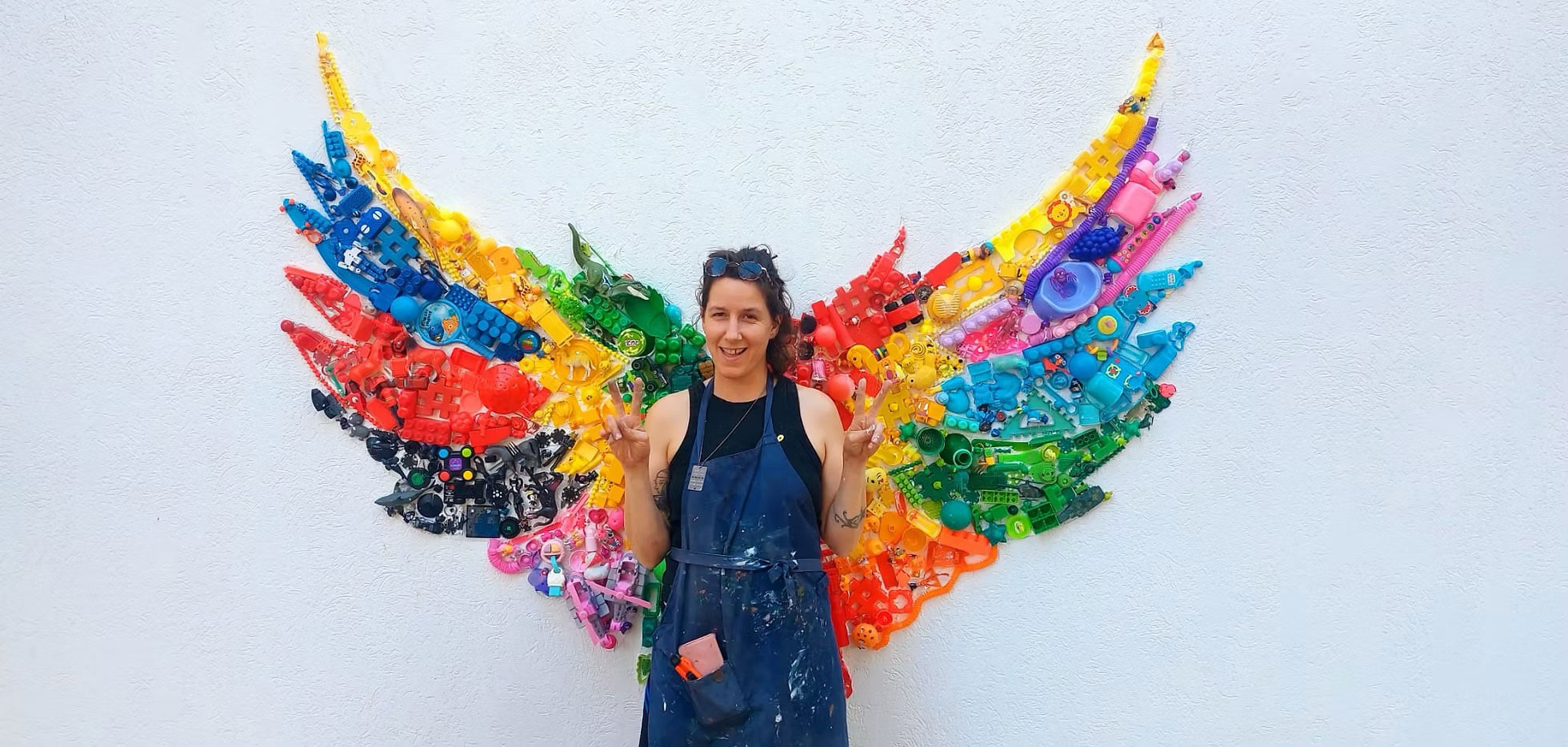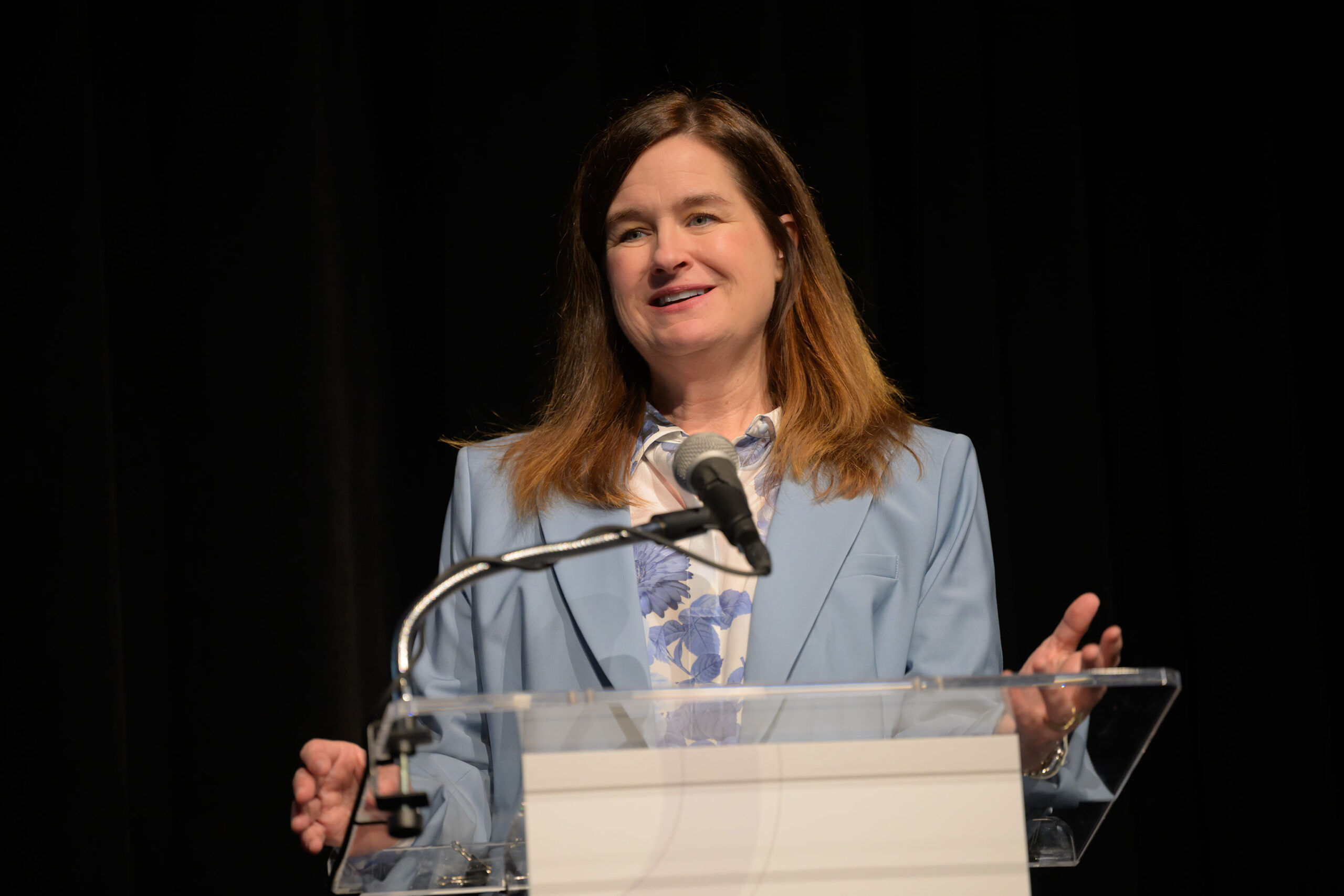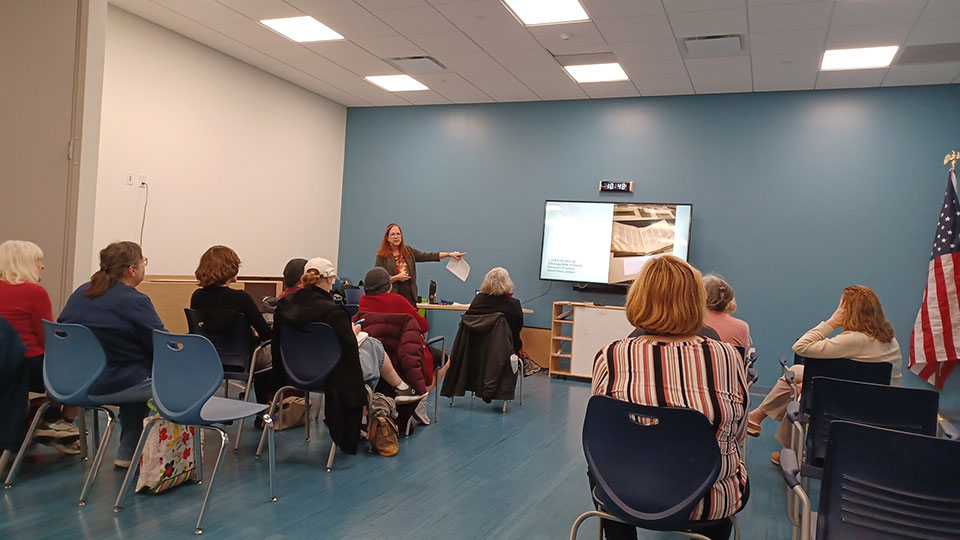Submitted by the Jewish Federation of Cincinnati
On Monday, April 15, social media personality Hen Mazzig spoke to the Cincinnati community at an event sponsored by the Jewish Federation of Cincinnati. The presentation was interrupted by protestors displaying anti-Zionist signs with messages like ‘Free Palestine’ and biblical references such as ‘Your Brother’s Blood Cries Out from the Ground – Genesis 4:10.’ These disruptions by individuals holding banners indicative of anti-Zionist sentiments have underscored the complexities of dialogue within the community. Following the release of the ADL’s report detailing a rise in antisemitism, these incidents have further highlighted concerns over security at future events. In response, the Federation has reinforced proactive security measures and community resilience. Below are questions posed to various leaders at the Federation, along with their responses.
How does the Jewish Federation of Cincinnati prioritize security at community events?
“Our strategy involves working closely with each Jewish nonprofit organization in Cincinnati for each event. SAFE Cincinnati, the Federation’s security arm, maintains strong relationships with each organization and has close ties with local law enforcement departments. Security for each event is coordinated directly between the organization and local law enforcement, with SAFE Cincinnati providing consultation, direction, and support as needed. Throughout this process, SAFE Cincinnati continuously assesses and enhances our security measures, protocols, and coordination with each facility and local law enforcement to strive for the highest possible level of security.” — Mark Dowd, Director of Community Security, SAFE Cincinnati
Can you provide insight into how the disruptions at the recent Hen Mazzig event were managed?
“The recent disruptions at the Hen Mazzig event were handled with an immediate and professional response by local law enforcement, in coordination with the Federation’s SAFE Cincinnati and the Mayerson JCC management. This incident is a stark reminder of why we must remain vigilant and responsive regarding our security posture at all our events. Despite the challenges, our community’s safety was not compromised, thanks to the swift action of law enforcement and our security team. A special thanks goes out to Amberley Village Police Chief Richard Wallace for his command presence and on-scene decision-making.” — Mark Dowd, the Federation’s SAFE Cincinnati Director
What future plans does the Jewish Federation have to further ensure the safety of its events?
“The dramatic rise in antisemitic incidents has underscored the critical need for enhanced security measures across our community spaces. Well before the events of October 7th, we recognized the necessity to bolster our security and initiated a comprehensive fundraising campaign. As a result, we are now hiring a new Associate Security Director. This role will focus on coordinating security personnel at our events and facilities, aligning with our commitment to providing a secure environment for our community members.” — Mark Dowd, the Federation’s SAFE Cincinnati Director
How are the statistics from the ADL report being used to inform the Jewish Federation’s security strategies?
“The ADL report has not only reinforced but underscored the necessity of our existing security strategies. These strategies include increasing security guard hours at our agencies and congregational events, upgrading surveillance technology, and enhancing training for our security personnel. To support these critical enhancements, we have increased the security budget for the next three years, drawing funds from The Jewish Foundation of Cincinnati, our national umbrella LiveSecure campaign, PNC, and generous individual donors. However, the scope of antisemitism as detailed by the ADL clarifies the ongoing need to expand these efforts. We are actively pursuing additional funding, collaborating with Ohio Jewish Communities to secure state funds, and engaging donors interested in directing their contributions specifically towards bolstering security. The data from the ADL is invaluable in this pursuit, as it provides a clear indication of the areas where our resources must be focused to ensure the safety and confidence of our community members.” — Danielle V. Minson, the Federation’s Chief Executive Officer
How does the Federation plan to utilize the data from the ADL report and other sources to readjust its strategies?
“The data from the ADL report, confirming the significant increase in antisemitic incidents, especially post-October 7th, is instrumental in shaping how we adjust our strategies. For security reasons I can’t go into the specifics, however we are increasing efforts on all fronts, including security training and public engagement efforts so we are best prepared and responsive to future situations.” — Danielle V. Minson, the Federation’s Chief Executive Officer
How is the Jewish Federation encouraging community members to respond to antisemitic incidents?
“We emphasize the importance of reporting any antisemitic incidents. This approach helps us understand the scope and climate of what we’re facing, assisting in our immediate response, and helping plan and allocate resources effectively. We urge everyone in our community to report antisemitic incidents, whether they experience them directly or witness them.” — Danielle V. Minson, the Federation’s Chief Executive Officer
What specific steps is the Jewish Federation taking to protect community spaces?
“Our focus has intensified on protecting vulnerable community spaces such as synagogues, community centers, and schools. We are continuously enhancing our security protocols, increasing the presence of trained security personnel, and upgrading our systems. These measures underscore our commitment to securing safe spaces for our community to gather and engage in Jewish life. The most important thing is for our community members to maintain situational awareness. Our best defense is awareness. As the saying goes, ‘If you see something, say something.’ In the event of any emergency or active incident, immediately report it to the local police by dialing 9-1-1, and then notify Federation’s SAFE Cincinnati.” — Danielle V. Minson, the Federation’s Chief Executive Officer
What has been the community’s reaction to the increased antisemitic incidents reported by the ADL?
“Our community is reasonably concerned about the rise in antisemitism, and we are responding by becoming more alert and investing more resources into proactive engagement with non-Jewish Cincinnati partners. While maintaining enough bandwidth to react to incidents of antisemitism as they occur, we are also substantially increasing our educational outreach. No one knows the exact strategy that will mitigate antisemitism in the long term, but I am sure that fostering deeper intercultural understandings is part of it — and protecting Cincinnati’s Jews from hate is our mission and top priority.” — Rabbi Ari Jun, the Federation’s Jewish Community Relations Council (JCRC) Director.
What role does community education play in your strategy to combat antisemitism?
“Education is fundamental to combating antisemitism. Most people are compassionate by default and don’t want to participate in hateful behavior — but many folks still have blind spots about what it means to be an ally to Jews. We aim to introduce people to Jewish life, history, thought, and culture, believing that this will help keep them from adopting antisemitic attitudes.” — Rabbi Ari Jun, the Federation’s JCRC Director.
What is being done to address the increase in antisemitic rhetoric, as mentioned in the recent report?
“While it’s hard to believe for many Jews, the average non-Jew doesn’t necessarily have a firm grasp of what is hateful to our people — and even though it might not seem fair, we have to educate others on what we consider hateful if we want to minimize their unintentional damage to our community. Our initiatives to solve for this problem involve engaging with schools, interfaith partners, civic groups, and public officials to foster a culture where critical thinking about the impact of one’s words becomes normative. This is part of our broader strategy to cultivate a community that stands firmly against all forms of hate. And, for the cases (and individuals) where engagement with antisemitic rhetoric is the intent, we are also working (to the extent the law allows) to ensure our schools and public spaces have appropriate policies in place to respond to hateful speech.” — Rabbi Ari Jun, the Federation’s JCRC Director





